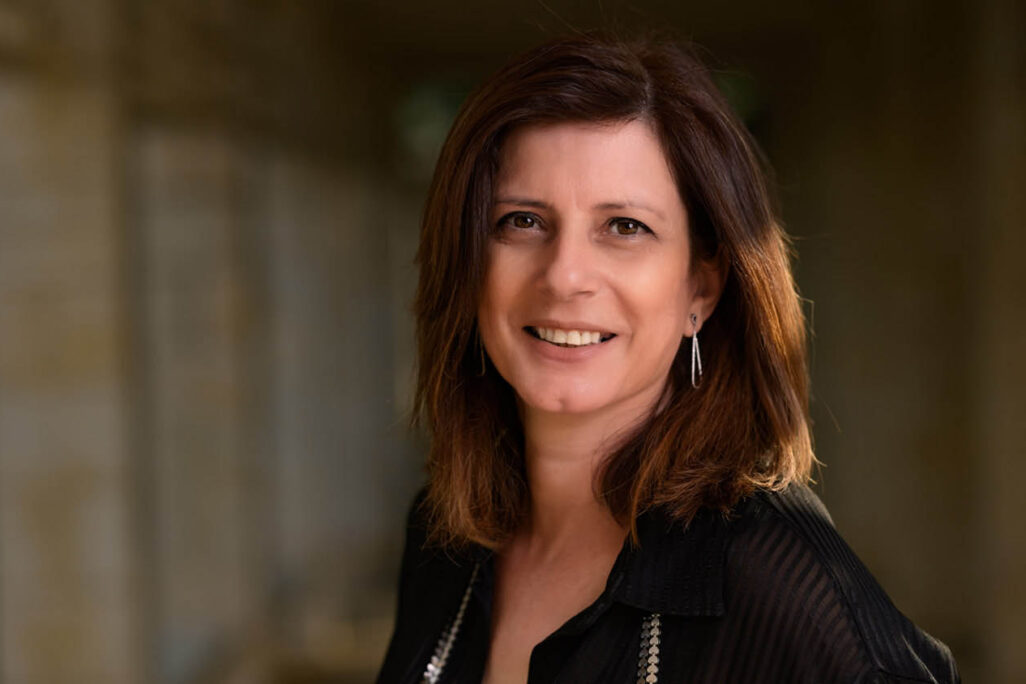
According to Dr. Maha Karkabi Sabah, “education is the main engine for economic change in Arab society,” especially when it comes to the underemployment of women in the Arab Israeli society.
“There has been a meaningful increase in recent years in the number of educated women in Arab society, but there is still a large gap in rates of education between Arab and Jewish women, and Arab and Jewish men,” she continued.
According to Dr. Sabah, director of the research unit at the Arab Economic Forum, Arab society understands that in order to integrate women into employment, they must be educated. This step has been translated into integration into the education and care professions, which have developed and expanded over the years under the auspices of the state. However, the low employment rate persists.
Davar sat down with Dr. Sabah to unpack this phenomenon.
How do you explain the increase in the number of Arab female students alongside the low employment rate among Arab women?
“This is a worldwide trend. Studies show that entering the labor market does not only depend on education, it is also a matter of access to the labor market; the availability of public transport, the length of the working day, if there are frameworks for children.
“This is the heart of the problem for Arab women, which has delayed their integration into the labor market for years. Jewish women have access to a wider range of professions. Arab women choose to study education rather than running a business. They prefer to work in the local workforce because it allows them to fill two social roles: work and management of the home and family.
“Some women also chose not to compete in an ethnically discriminatory labor market, adapting themselves to the local workforce only. In recent years, there has been a discussion about changing the nature of women’s education. 70% of women in the Arab sector have only 12 years of schooling. The government is making an effort to train them for the current labor market.”
Integration into high-tech in Israel requires higher education. Is it possible to integrate Arabs?
“Israel has an interest in Arabs integrating into high-tech. Abroad, there is a lively discussion about the diversity of employees in companies. If there is an appeal to the younger generation joining high-tech, they will integrate. There are also barriers in high-tech, such as the masculine nature of the industry in terms of conditions and requirements. The family patterns in society are masculine, and this is a question of how the women in Arab society will be able to cope with it.
“In addition, high-tech is located in the central region, far from the Arab localities. An integrated structural solution is needed. Not only to encourage women to go to work, but also to make the places of employment accessible. It is also true that the high-tech field is a demanding one in terms of working hours.”
How can economic change affect inactive youth?
“17-year-olds can integrate into the labor market and receive a salary like a woman with a degree in the education system. Arab men enter professions with a good salary without education. However, some men have studied but not worked in the profession they studied in.
“There are [some] professions that will shrink, but there are also professions that Jews have left. This has created a new structure of opportunities. We also have to think about how we deal with migrant workers, in professions that Jews have left, such as contracting and subcontracting within the evolving structure of opportunities.”
How does the middle class’ transformation into much more diverse affect its social or political functioning?
“There is no significant difference between the Arab middle class and the lower class in social perceptions. It is a middle class that develops locally, on the basis of tribalism and clannism. There is no socio-economic and geographical mobility. Mobility is anchored in space.
“This is a class that has developed on the basis of consumerism. It has improved at the economic level and has been exposed to the universal processes of globalization and technology. It is adopting models of economic and social conduct at the standard of living using similar models to the West.
“But in terms of perceptions and values, there is no change. They can have a high standard of living and consumption as the [Jewish] middle class, but their perceptions about the status of women will not change. Tribal affiliation is still present.”
Who is the [government’s] five-year plan aimed at?
“It is aimed at the interest of Israeli society and the Israeli economy in the hope for Arab society to enter the circle of employment and not be a dependent population in the country. It is also for the development of a discourse of equal opportunities and for these political processes to take place in society.
“Nowadays, there is more understanding in the government that economic disparities cannot be ignored. In the end, two questions remain: to what extent such plans can bridge long-standing disparities, and whether the proposed plan will correct the shortcomings in [former plan directing funding toward the Arab community] Resolution 922 or is it all just so that more money flows.”
This article was translated from Hebrew by Matt Levy.






